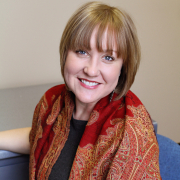Understanding Loneliness
In Dr. Vivek Murthy's book, "Together," he writes that "humans are social creatures: in this simple and obvious fact lies both the problem and the solution to the current crisis of loneliness." At the center of our loneliness is our innate desire to connect. We have evolved to participate in community, to forge lasting bonds with others, to help one another and to share life experiences. Simply, we are better together. And yet, in spite of our desire to connect, Dr. Murthy describes three kinds of loneliness that can be helpful in understanding where we may be feeling stuck.
- Intimate loneliness is what you feel when you lack really close relationships with people who know you truly for who you are, with whom you can be fully yourself. That often is a best friend or a spouse.
- Relational loneliness is when we lack friendships. These are the kind of friendships where you would spend time with people during evenings or weekends, or you have a friend you would have over to a dinner party or go on vacation with.
- Collective loneliness is when we lack a sense of community-based or shared identity. That could be a community of parents who have kids who go to the same school. It can be a community of people who have a shared mission or it could even be colleagues who have loyalty to their organization and are committed to the mission.
The good news is that with an awareness of the causes of our loneliness, comes creative solutions to help ourselves and those we love to create more connected lives. Dr. Murthy suggests taking some simple steps to strengthen our connections:
- Make a commitment to spend at least 15 minutes a day with the people we love—which could include via video conference or phone. That time can be valuable in helping elevate our mood and make others feel better, too.
- Focus on the quality of the time we have with other people by listening carefully and by sharing more openly. One of the most tangible ways to do that is to eliminate distractions. Even if you spend less time with someone, making that time count is important. Five minutes of conversation where we’re open, listening deeply and showing up fully is often more fulfilling than 30 minutes of distracted conversation.
- Look for ways to serve others. Service is a powerful antidote to loneliness. When we’re chronically lonely, our focus shifts inward and our threat level rises. Over time, our sense of ourselves starts to erode as we start to believe that the reason we’re lonely is that we’re not likable. But service is powerful because it breaks those harmful cycles by shifting the focus from ourselves to someone else in the context of positive interaction. Serving others also reaffirms to us that we have value to bring to the world. During this time of COVID-19, service can look like checking on a neighbor, calling a friend to see how they’re doing, delivering food to a friend who might be struggling, etc. Service can be a lifeline.
We invite you to put these three steps into action throughout the holiday season and COVID-19 pandemic to help deepen your connections with family, friends and co-workers. The Community Quickstarts page, presented by UK Human Resources and UK Staff Senate, offers additional ways to connect and show appreciation to those around you.
You can learn more about loneliness and related topics from UK HR Health and Wellness' certified health coaches. If you would like to speak with someone for additional support, you can request a free appointment with one of four licensed mental health clinicians with UK HR mental health therapist employee counseling.
